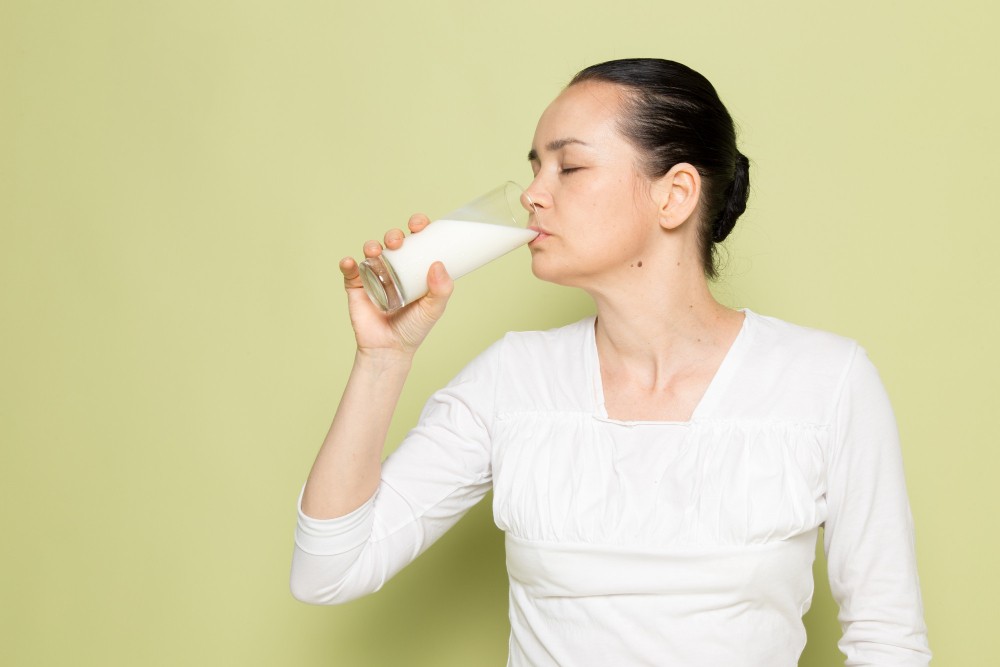Stunting is still a problem that requires a lot of attention in Indonesia, mainly because the stunting rate in Indonesia is still above the limit set by the World Health Organization (WHO). Stunting is a condition when a toddler has a height below average due to a long-term lack of nutritional intake. Stunting has the potential to slow brain development, lower learning ability, and increase the risk of chronic diseases such as diabetes, hypertension, and obesity.
Newborns need a well-balanced diet during their first 1,000 days to ensure healthy growth and development. This includes nutrition from the womb, exclusive breastfeeding, and nutritious solid foods.
Is stunting a possible consequence of not drinking milk?
Not drinking milk in the first 1000 days of a newborn's life does not lead to stunting as a direct consequence. Stunting is a multidimensional problem. Various factors, including inadequate nutrition, repeated infections, poor sanitation, unhealthy living environments, and limited access to healthcare services, influence it.
Studies suggest that milk consumption in children from 6 months to 5 years old may help prevent stunting by a percentage of 1,9 percent. So, although milk is not the only factor influencing stunting, giving milk can be an important strategy in preventing stunting overall.
Read more: Causes Of Baby Vomitting After Drinking Bribery (Formulation Milk)
Benefits of giving milk to children
Consuming milk regularly in childhood can help prevent stunting. Milk offers numerous benefits for children's health, such as:
- As a source of important nutrients that children need because it contains protein, calcium, vitamin D, vitamin B12, riboflavin, and other additional vitamins
- It helps form strong bones and teeth in children
- It contains omega-3 and omega-6 fatty acids, which are good for children's brain development
- The protein in milk is important for the formation and repair of children's body tissues
- Contains minerals and vitamins that can support children's immune systems and protect them from disease
- The carbohydrate and fat content in milk provides children with energy for daily activities
- It helps maintain children's body hydration, especially when active in activities or in hot weather
Read more: Is Protein Milk Really Effective For Muscle Formation?
How much milk should children drink is recommended?
According to the American Academy of Pediatrics, if a baby no longer drinks breast milk at 12-24 months, the baby can be given around 480-720 ml of pure cow's milk daily. Children aged 2-5 years can be given 480-600 ml of low-fat milk daily.
It's important to remember that these are just general guidelines. Children's nutritional milk needs vary depending on their health histories, physical activity levels, and food preferences. To ascertain the optimal milk intake for your child, consult a pediatrician or nutritionist.
They can also help recommend other milk alternatives if your child has an allergy or lactose intolerance.
If you have doubts about milk intake, child stunting, or other health matters, use the health consultation service provided by Ai Care by downloading their app from the App Store or Play Store.
Want to know more information about pregnancy, breastfeeding, and the health of women and children? Click here!
- dr. Yuliana Inosensia
Healthline. (2021). Does Milk Help You Grow? [online] Available at: https://www.healthline.com/nutrition/does-milk-help-you-grow.
Harvard T.H. CHAN (2020). Milk. [online] The Nutrition Source. Available at: https://www.hsph.harvard.edu/nutritionsource/milk/.
www.who.int. (n.d.). Indicator Metadata Registry Details. [online] Available at: https://www.who.int/data/gho/indicator-metadata-registry/imr-details/72.
Kwon, Y., Lee, S.W., Cho, Y.S., Jeong, S.J. and Han, M.Y. (2021). Is High Milk Intake Good for Children’s Health? A National Population-Based Observational Cohort Study. Nutrients, 13(10), p.3494. doi:https://doi.org/10.3390/nu13103494.
Verywell Family. (n.d.). Decline in Childhood Milk Consumption May Affect Long Term Health. [online] Available at: https://www.verywellfamily.com/decline-in-milk-consumption-may-affect-long-term-health-5077384.
Verywell Family. (n.d.). Decline in Childhood Milk Consumption May Affect Long Term Health. [online] Available at: https://www.verywellfamily.com/decline-in-milk-consumption-may-affect-long-term-health-5077384.
Australia, H. (2021). The first 2 years of a baby’s life can impact their health and wellbeing later on. Here’s what you can do to give your child the best possible start. [online] www.pregnancybirthbaby.org.au. Available at: https://www.pregnancybirthbaby.org.au/the-first-1000-days.
Kubala, J. (2018). 5 Proven Health Benefits of Milk. [online] Healthline. Available at: https://www.healthline.com/nutrition/milk-benefits.












